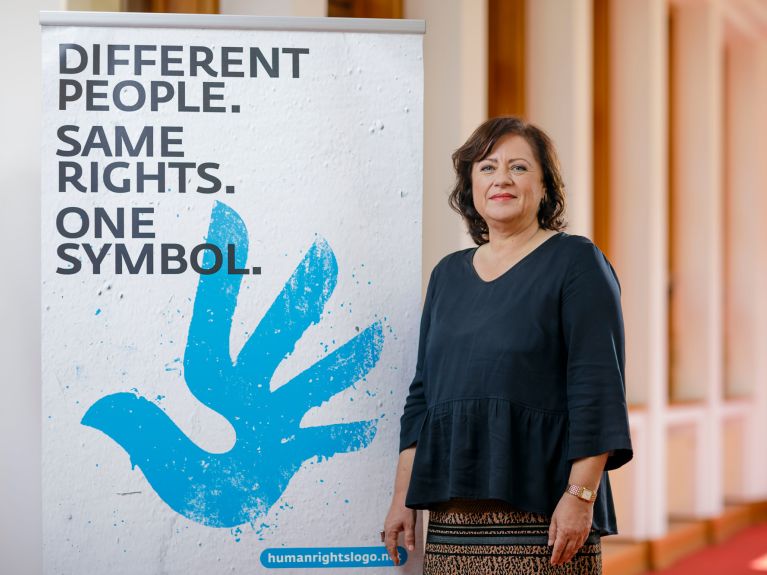“We now need to take a really close look”
Federal Government Commissioner Bärbel Kofler explains why human rights are especially threatened by the Covid-19 pandemic.

Ms Kofler, you found it very important to make human rights a high ranking topic during the German EU Council Presidency. Which aspects are particularly urgent?
Human rights are being threatened in many areas at present. It is especially important that we take a really close look at the current situation and push for an ambitious European human rights policy together with other member states. Even in several EU member states we are experiencing attacks on human rights and fundamental principles of the rule of law, for instance in Hungary and Poland. The EU now needs to take a firm stand by refusing to allow violations of its basic values, human rights and the rule of law. Progress is also urgently needed in the mechanisms of human rights sanctions. This would enable precisely targeted prosecution and punishment and equip the EU with a powerful instrument in its human rights policy.
Will the Covid-19 pandemic also lead to a human rights crisis?
Unfortunately, numerous states are violating basic rights during the Covid-19 pandemic. There are justifiable concerns that the restrictions already introduced will not always be lifted after the pandemic is over, especially in countries where the human rights situation was questionable before the outbreak began. All measures introduced during the crisis should be assessed to see whether they are just and reasonable, and whether the three pillars of human rights – universality, inalienability and indivisibility – remain indisputably in place.
A supply chain law is the only sustainable method to ensure that human rights and fair working conditions are safeguarded.
The debate surrounding a supply chain law is now developing in Germany and at European level. Why is such a law so important?
The majority of German companies are still failing to fulfil their corporate due diligence obligations. This is clearly illustrated by the results of two surveys of companies carried out by the federal government. The only solution is a supply chain law that ensures that human rights and fair working conditions are respected throughout the whole production process, because human rights are basic rights, not luxuries. Indeed, increasing numbers of companies themselves are starting to speak out in favour of legal regulations. These should apply to everyone, and not be of disadvantage to those who are already fulfilling their corporate due diligence obligations in the area of human rights. Progress at EU level also plays a role in equal opportunity. Consequently, we need to promote two lines of approach: a supply chain law at national level and a legislative initiative at EU level.
In June 2020 the Federal Foreign Office and the Institute for International Cultural Relations (ifa) launched a programme to help human rights defenders. Why is the Elisabeth Selbert Initiative so important?
For years we have recognized that in many countries the freedom to act in civil society is being increasingly restricted. Unfortunately, the Covid-19 pandemic is reinforcing this tendency. The Elisabeth Selbert Initiative is designed to support human rights defenders who are in acute danger. They will receive temporary respite either in their home country or in Germany. We want to ensure that human rights defenders are not left alone, especially in the current situation.
Bärbel Kofler has been the Federal Government Commissioner for Human Rights Policy and Humanitarian Assistance since 1 March 2016.
Interview: Sarah Kanning
You would like to receive regular information about Germany? Subscribe here:


